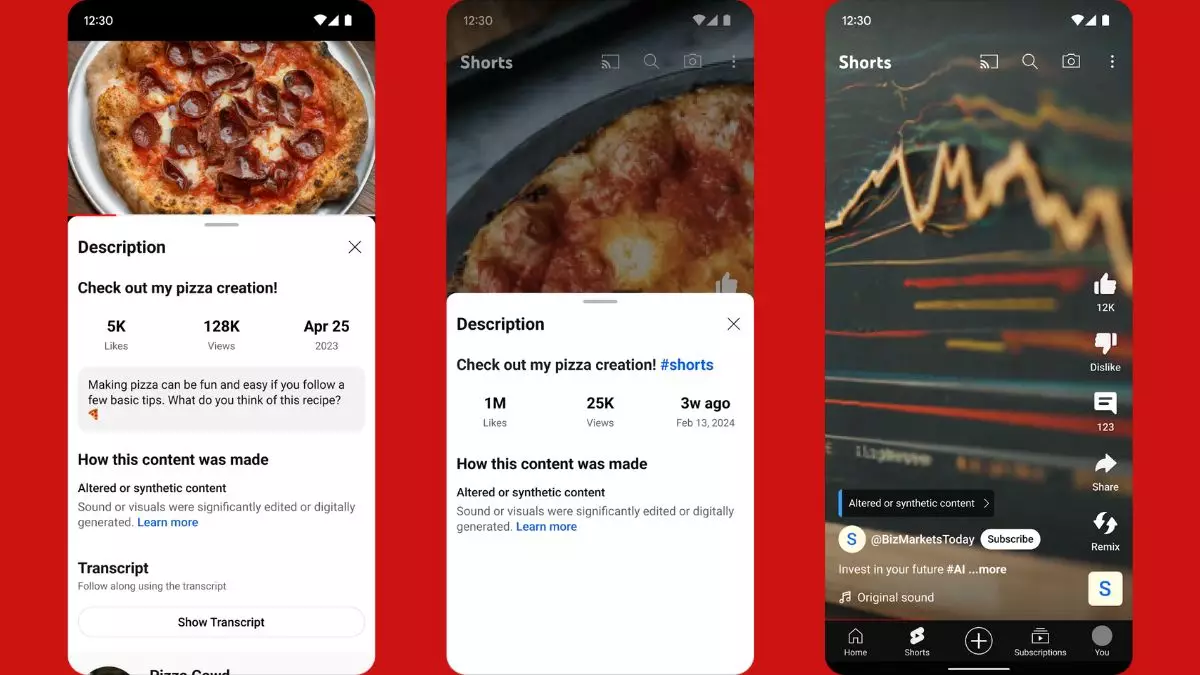YouTube recently announced a crackdown on artificial intelligence (AI)-generated content on its platform. This initiative aims to create transparency around videos that have been altered or generated using AI tools. As part of this new policy, creators are now required to disclose when their content falls into this category. Failure to do so can result in penalties such as content removal or suspension from the YouTube Partner Programme.
Creators will now find a new section titled “Altered Content” in the video-uploading workflow. This section includes three questions that creators must answer honestly. These questions are designed to identify whether the video includes manipulated content, altered footage of real events, or scenes that are digitally generated. If any of these elements are present in the video, creators must mark “Yes”, and YouTube will automatically add a label in the video description.
The new labels indicating AI-generated content will be visible in both long-format videos and Shorts. In addition, Shorts will have a more prominent tag placed above the channel name. These labels will initially be visible on the Android and iOS apps, with plans to extend them to the web interface and TV. This increased visibility aims to inform viewers about the nature of the content they are consuming.
YouTube has made it clear that creators who fail to disclose AI-generated content will face consequences. While the platform is currently allowing a grace period for creators to adapt to the new requirements, penalties such as content removal and suspension from the YouTube Partner Programme will be enforced in the future. This strict approach underscores YouTube’s commitment to addressing the issue of deepfakes and ensuring authenticity on its platform.
YouTube’s decision to crack down on AI-generated content is part of its broader effort to combat the proliferation of deepfakes. The platform aims to equip viewers with the tools to identify and report synthetic or altered content that simulates identifiable individuals. Additionally, separate rules have been introduced to safeguard the content of music labels and artists, further emphasizing YouTube’s commitment to maintaining authenticity and integrity in its content ecosystem.
YouTube’s recent crackdown on AI-generated content marks a significant step towards promoting transparency and authenticity on the platform. By requiring creators to disclose altered or synthetic content, YouTube is empowering viewers to make informed choices about the videos they watch. The implementation of new labels and penalties for non-compliance demonstrates the platform’s commitment to combating deepfakes and protecting the integrity of its content.


Leave a Reply